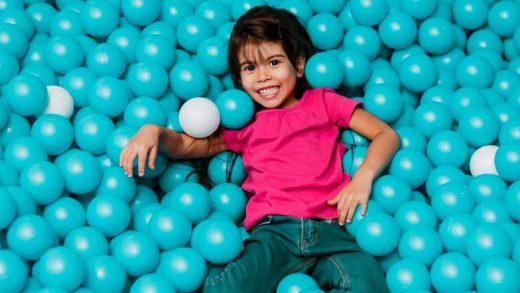Motivation is a key factor in early childhood development, and it plays a pivotal role in shaping a child’s attitude towards learning. In a preschool setting, where the foundations of education are laid, fostering motivation is crucial for nurturing a love for learning that will last a lifetime. This blog explores the significance of motivation for your little geniuses and offers practical motivation tips for students, examples and activities to create an engaging and inspiring classroom environment.
Why do we need to motivate our students?
Before we explore how to develop motivation in students, let us first understand why motivation is important in the first place. Here’s why motivating young minds makes a huge difference during early childhood:
- Curiosity and Exploration:
- Passion for Learning:
- Improved Concentration:
- Enhanced Problem-Solving Skills:
- Increased Self-Esteem:
- Development of Life Skills:
- Holistic Development:
Preschoolers are naturally endowed with an insatiable curiosity about the world around them. At this developmental stage, their minds are like sponges, absorbing information and experiences. Motivation serves as the catalyst for channeling this curiosity into constructive and purposeful exploration. It is the compass that points your little geniuses in the right direction.
Beyond merely completing tasks, motivation plays a pivotal role in cultivating a genuine passion for learning. It is about nurturing an intrinsic desire to understand, discover and engage with the learning process. This passion serves as a driving force that propels their educational journey with enthusiasm and eagerness.
Motivated preschoolers demonstrate enhanced concentration levels. When they find a task interesting or are driven by a sense of purpose, they naturally focus their attention on the activity at hand. This heightened concentration results in more effective and meaningful learning experiences.
Motivation acts as a cognitive stimulant, too, encouraging preschoolers to uninhibitedly tackle challenges with a problem-solving mindset. The intrinsic desire to overcome obstacles fosters the development of critical thinking skills, resilience and the ability to approach problems with creativity and determination.
Successfully accomplishing tasks, no matter how small, instills a sense of achievement and confidence. This positive reinforcement contributes to the formation of a healthy self-image, empowering preschoolers to take on new challenges with self-assurance.
How to develop motivation in students extends beyond academic achievements, contributing significantly to the development of essential life skills. Preschoolers learn perseverance as they strive to achieve their goals, take responsibility for their learning journey and cultivate a positive attitude towards challenges that extends into various aspects of their lives.
Educators recognize the profound impact of motivation on the holistic development of preschoolers. It goes beyond academic milestones, encompassing emotional, social and cognitive growth. Understanding the significance of motivation becomes the cornerstone for creating an environment that nurtures the complete development of young minds.
How to Motivate Students for Learning:
If you’re thinking about how to motivate students for learning such that they enjoy the journey as much as they look forward to the goal, look no further. Let’s explore innovative motivation tips for students that serve as positive reinforcement, cultivating a love for learning in the preschool classroom.
- Themed Learning Weeks:
- Show and Tell Extravaganza:
- Outdoor Exploration Days:
- Interactive Storytelling Adventures:
- Role-Playing and Dramatic Play Spaces:
- Artistic Expressions and Craft Galore:
- Music and Movement Celebrations:
- STEM Exploration Stations:
Whether it’s a focus on animals, nature, or community helpers, these themed learning weeks immerse children in a world of excitement and discovery. Plan a range of activities, crafts, and lessons that align with the chosen theme, transforming the classroom into a dynamic learning hub where every day brings new adventures and lessons.
Elevate the classic “Show and Tell” tradition into a weekly extravaganza of communication and expression. Encourage children to bring items that reflect their interests, fostering a sense of individuality and self-expression..
Break free from the confines of the classroom and embrace the wonders of the outdoors. Organize exciting outdoor exploration days that include nature walks, scavenger hunts, and hands-on gardening activities.
Transport preschoolers into the enchanting world of storytelling by elevating it to an interactive experience. Introduce props, puppets, or interactive elements to make stories come alive. Encourage children to actively participate in the storytelling process, allowing their imaginations to soar.
Transform a corner of the classroom into a dynamic stage for role-playing and dramatic play. From mini kitchens to doctor’s offices and markets, these designated areas become hubs of creativity, cooperation, and problem-solving. As children immerse themselves in imaginative scenarios, they develop social skills, learn to collaborate with peers, and explore solutions to various challenges.
Unleash the artistic potential within each child by incorporating a variety of craft activities. From painting and drawing to sculpture and collage-making, artistic expressions become a vehicle for self-discovery and creativity. Displaying their creations in a designated “Art Gallery” within the classroom adds an extra layer of encouragement, celebrating their unique talents and fostering a sense of achievement.
Integrate the joy of music and movement into the learning environment. Organize periodic music and movement celebrations where children can dance, sing and express themselves through rhythm and melody. This not only promotes physical activity but also enhances coordination, rhythm recognition and a joyful appreciation for the arts.
Foster a love for science, technology, engineering and mathematics (STEM) by creating exploration stations within the classroom. Encouraging hands-on exploration of STEM concepts instills a sense of curiosity and problem-solving skills, laying the groundwork for future academic success.
Bring the Motivation Home!
It’s important to keep the learning process going even at home. So as parents, it is important to ensure our little learners remain inspired. Here are some tips for parents to use at home:
- Follow their interests: Whether it’s animals, colors or shapes, incorporating these topics into daily activities makes learning more enjoyable and relevant for your toddlers.
- Create a learning-friendly environment: Having a dedicated area for learning space at home with age-appropriate books, toys, and activities reinforces the idea that learning is an important and enjoyable part of their daily routine.
- Praise effort, not just results: Focus on praising the effort your toddler puts into tasks rather than solely emphasizing the end result.
- Be patient and encouraging: Toddlers are in the early stages of developing various skills, and patience is key. Encourage their attempts, even if they make mistakes. Offer support, gentle guidance and celebrate the progress they make along the way.
- Incorporate play into the learning process: Turn counting into a game, use toys for sorting and categorizing, or engage in imaginative play that encourages creativity and problem-solving.
- Set realistic expectations: Each child progresses at their own pace, so be mindful not to compare them to others. Celebrate their unique strengths and accomplishments.
- Establish a routine: Create a daily schedule that includes a balance of learning, play, and rest. Consistency in routine helps toddlers know what to expect and can enhance their motivation.
- Use positive language: Choose positive and encouraging language when communicating with your toddler. Instead of saying, “You can’t do that,” say, “Let’s try it together.”
- Celebrate small achievements: Whether it’s successfully completing a puzzle, stacking blocks or using new words, these celebrations reinforce the joy of learning and encourage a sense of accomplishment.
- Involve them in daily tasks:
Include your toddler in daily activities like cooking, cleaning or organizing. Simple tasks not only develop practical skills but also instill a sense of responsibility and pride.
- Explore the outdoors together: Whether it’s observing plants, insects, or simply feeling different textures, these experiences stimulate curiosity and a love for the world around them.
- Be a learning role model: Demonstrate a positive attitude towards learning by showcasing your own curiosity and eagerness to explore new things.
Motivating preschoolers is a multifaceted task that requires a combination of positive reinforcement, varied teaching methods, and a deep understanding of each child’s unique needs. At Kangaroo Kids, we recognize that every small effort contributes to a lifetime of curiosity and academic success. As educators, let’s embrace the joy of teaching and inspire the next generation of eager learners.









